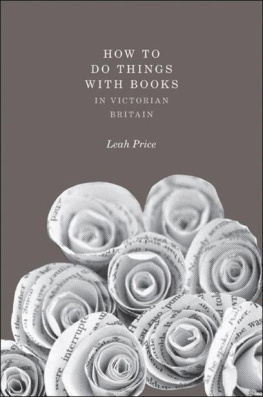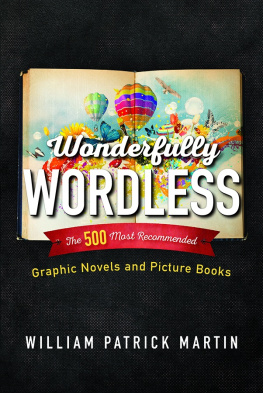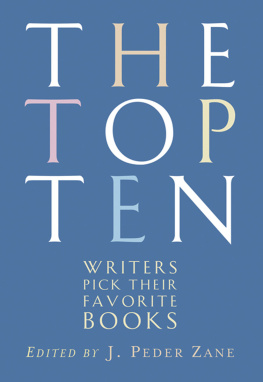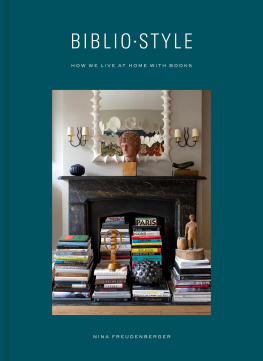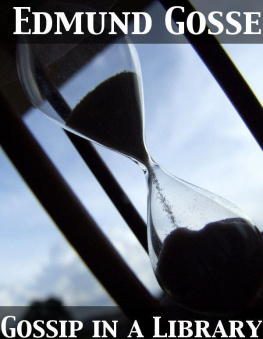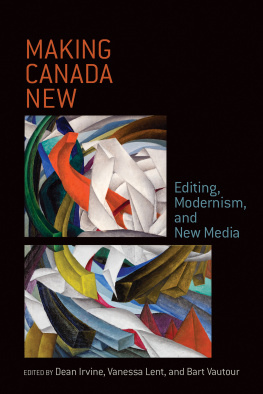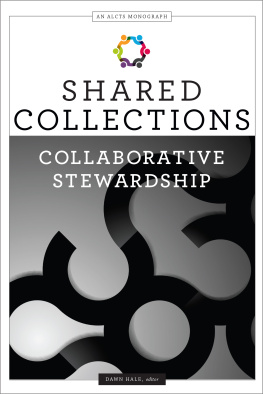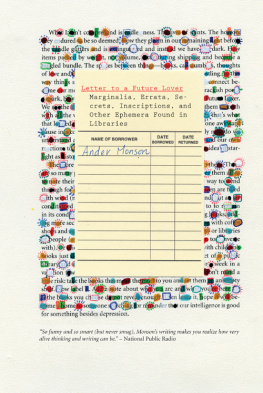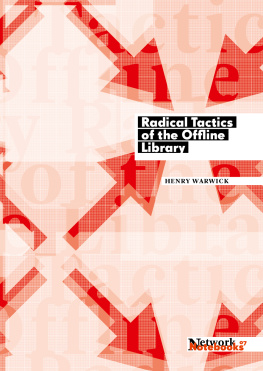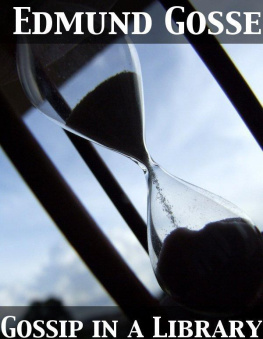Contributors
Alison Bechdel is a cartoonist and author best known for her comic strip Dykes to Watch Out For, which ran from 1983 to 2008. In 2006 she published Fun Home: A Family Tragicomic, a critically acclaimed autobiography, which became a New York Times best-seller and was named one of Time magazines Ten Best Books of the Year. She continues to illustrate for websites and magazines, including Ms., Slate, and the Advocate.
Stephen Carter is the William Nelson Cromwell Professor of Law at Yale, where he teaches courses on law and religion, the ethics of war, contracts, intellectual property, and professional responsibility. He has written numerous nonfiction books, and his first novel, The Emperor of Ocean Park, became a New York Times best-seller.
Junot Daz received the 2008 Pulitzer Prize for Fiction for his novel The Brief Wondrous Life of Oscar Wao; his other books include Drown (1996). Daz, who moved to New Jersey from the Dominican Republic in his early childhood, is professor of writing at Massachusetts Institute of Technology.
Rebecca Goldsteins books include Properties of Light: A Novel of Love, Betrayal, and Quantum Physics, Incompleteness: The Proof and Paradox of Kurt Gdel, and Thirty-Six Arguments for the Existence of God: A Work of Fiction. In 1996 she became a MacArthur Fellow.
Steven Pinker is Harvard College Professor and Johnstone Family Professor in the Department of Psychology at Harvard University. He is a frequent contributor to the New York Times, Time, and the New Republic on topics such as language and politics, the neural basis of consciousness, and the genetic enhancement of human beings. His books include The Language Instinct, How the Mind Works, The Blank Slate, and The Stuff of Thought: Language as a Window into Human Nature.
Lev Grossman is a book critic and technology writer for Time magazine. After the international acclaim of his novel Codex, he published his third novel, The Magicians, which quickly became a New York Times best-seller.
Sophie Gee is an assistant professor of English at Princeton, where she teaches courses on eighteenth-century poetry and novels and on the history of satire. Her first novel, The Scandal of the Season, was named one of the best books of 2007 by the Washington Post and the Economist. Making Waste: Leftovers and the Eighteenth-Century Imagination was published by Princeton University Press in 2010.
Jonathan Lethem is a novelist and short story writer who has contributed to Rolling Stone, the New Yorker, and Harpers, among other publications. His 1999 novel Motherless Brooklyn won the National Book Critics Circle Award for Fiction, and in 2003 The Fortress of Solitude became a New York Times best-seller. In 2005 Lethem received a MacArthur Fellowship.
Claire Messud is writer in residence at Tulane University. Her first novel, When the World Was Steady, and her collection of novellas, The Hunters, were both finalists for the PEN/Faulkner Award. Her most recent novel, The Emperors Children, was named one of the Ten Best Books of the Year for 2006 by the New York Times Book Review.
James Wood is a literary critic and novelist. He is currently Professor of the Practice of Literary Criticism at Harvard University and a staff critic at the New Yorker. He is the author of three books of criticism and an autobiographical novel, The Book Against God (2003).
Leah Price is professor of English at Harvard University. Her books include The Anthology and the Rise of the Novel (2000) and How to Do Things with Books in Victorian Britain (2012).
Philip Pullman is the author of nearly twenty books, his most well-known work being the trilogy His Dark Materials. The second of these books, The Amber Spyglass, was the first childrens book to win the Whitbread Book of the Year Award, and his other books have garnered accolades including the Carnegie Medal and the Guardian Childrens Book Award.
Gary Shteyngart is the author of three novels and is a frequent contributor to such publications as the New Yorker, Slate, and the New York Times. His first novel, The Russian Debutantes Handbook, won the Stephen Crane Award for First Fiction, the Book-of-the-Month Club First Fiction Award, and the National Jewish Book Award for Fiction.
Edmund Whites works include novels, autobiographical sketches, and social commentary, specifically focusing on gay identity in America and the effects of AIDS on society. A member of the American Academy of Arts and Letters and of the American Academy of Arts and Sciences, White is best known for his biography of the French writer Jean Genet, which won the National Book Critics Circle Award in 1994.
Alison Bechdel


An Interview with Alison Bechdel
LEAH PRICE:Of all the bookshelves Ive seen for this project, yours are the most obsessively organized. Their arrangement juxtaposes the high and the low, the ephemeral and the scholarly, but theres nothing haphazard about the efficiency with which you have categorized, for example, tits and clits in one box and misc. boy in another. Does this extend to the way you organize your other possessions? Do you color-code your spices, alphabetize your socks?
ALISON BECHDEL: Its ironic that I categorize my library so rigidly because Ive often griped about the way my own work gets pigeonholed in bookstores. My Dykes to Watch Out For cartoon books tend to end up in the LGBT Studies section instead of in Humor or Graphic Novels. And my memoir Fun Home might be anywhere. In one big chain store, I was disappointed not to find it in the graphic novel sectionbut then I found it in New Biography, and was delighted to see it being treated as a regular, nongraphic book.
I was at a younger friends house recently and noticed that she had fiction, nonfiction, and graphic novels all shelved together in alphabetical order by author. This seemed like a very evolved way of doing things, and made me feel sheepish about the way Ive ghettoized my own collection of comics and graphic novels. Yet I dont feel quite ready to abandon all categories.
My library starts with fiction in the living room. Then the shelves jump up to the landing of the stairs and continue with memoir, autobiography, some random nonfiction and anthologies. Then comes art theory, cultural criticism, film and lit crit, linguistics, psychoanalysis, mythology, philosophy, religion. I used to connect these books like Legos in a particular progression that felt like a model of my intellectual frameworkmy interest in how words and pictures work together, how stories and ideas inform each other. Barthess Image, Music, Text was the keystone holding it all up. It felt very helpful to have this little schema that I could adjust and rearrange as my thinking evolved.
Next comes my small current affairs and political science section, then feminism. Upstairs is my fairly extensive queer theory/LGBT studies section. This had gotten way out of control in recent years: a jumble of history, theory, art, sex, lesbian, gay, and transgender stuff. It was impossible to find anything. Then I had the brilliant idea to organize it all by publication date. Not only can I find things instantly now, but the spines create a curiously eloquent timeline of the Zeitgeist over the past thirty yearsfrom Jill Johnstons


